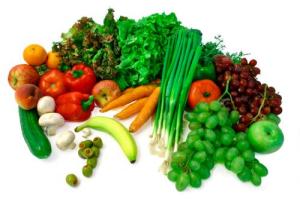A ~ The basics of what we eat is disputed by many experts and specialists trying to promote their approach, their book, their diet, their research, etc.
If you go back to the basics of what truly healthy eating is without the gimmicks, fads, and quick fixes, in our informed opinion, it should be comprised of:
- 60-65% carbohydrates
- 10-12% protein
- 20-30% healthy fat.
To figure out how much of each type of food you should consume, let’s look at your basal metabolic rate (BMR)
Men: Body Weight (pounds) x 24/2.2
Women: Body Weight (pounds) x 21/2.2
An Example) A Female Weighs 150 pounds x 21 = 3150/2.2 = 1432 calories per day before any physical activity. So if you do physical exercise, move about the day taking care of daily life activities, lead a sedentary or active lifestyle, it will affect the amount of calories your body will burn off in addition on any given day.
Complex carbohydrates provide a sustained and gradual release of glucose into the bloodstream. Select foods such as pasta, bread, grains, and cereals. Complex carbohydrates should be the primary staple in your food consumption.
Fats do not aid in providing many vitamins, but 2 tablespoons a day will help your body absorb vitamins such as Vitamins A, D, E, and K. Recommended oils Omega Oils, Flaxseed Oil, Cod Liver Oil. Fish and Avocados can be great sources of fat.
Protein provides the structural basis for muscle tissue and supplies energy only when enough carbohydrates or fats aren’t present. Good sources of protein include legumes, meats, milk, and eggs.
Take a look at how much you are consuming on a day to day basis- and you can estimate if you think your body should be gaining weight, maintaining, or losing weight based on what you are doing. You can then determine how and what you should adjust.
If you need further assistance don’t hesitate to contact us.
Filed under: body image, Change, counseling, diet, eating, emotions, health, healthy eating, Nutrition, self help, thinking, weight loss | Tagged: Carbohydrates, Counselor, diet, Eating, Fat, Food Choices, Healthy Eating, Hungy Heart, Nutrition, Protein, Self Esteem, weight loss | Leave a comment »




